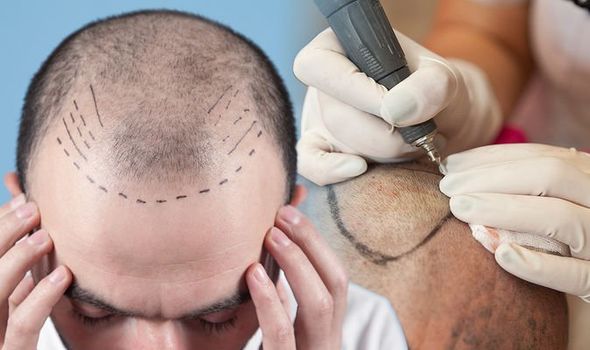The Benefits of NDIS Funded Personal Medical Alarms

Personal Medical Alarms funded by the NDIS provide individuals with disabilities or chronic health conditions the peace of mind and security they need to live independently. These alarms are designed to help individuals receive immediate assistance in case of an emergency, allowing them to maintain their independence and quality of life. In this blog post, we will explore the benefits of NDIS funded Personal Medical Alarms and how they can improve the safety and well-being of those who need them.
Contents
- 1 Understanding the NDIS and Personal Medical Alarms
- 2 Eligibility Criteria for NDIS Funding for Personal Medical Alarms
- 3 How Personal Medical Alarms Enhance Safety and Independence
- 4 Choosing the Right Personal Medical Alarm with NDIS Funding
- 5 Success Stories: Real-life Impact of NDIS Funded Personal Medical Alarms
- 6 Conclusion
Understanding the NDIS and Personal Medical Alarms
The National Disability Insurance Scheme (NDIS) is an initiative by the Australian government aimed at supporting citizens with disabilities by funding necessary services and equipment, including Personal Medical Alarms. These alarms are critical tools for individuals who might face emergencies where immediate assistance is paramount. Equipped either as wearable devices or installed within homes, they provide a direct line to emergency responders or a designated support team at the push of a button. This accessibility ensures that, in times of need, individuals can quickly alert others to their situation, facilitating swift action to address any health crises. This blend of technology and support underscores the commitment to enhancing the autonomy and safety of those living with disabilities or chronic health conditions, embodying the NDIS’s broader goal of fostering independent living and well-being among participants.
Eligibility Criteria for NDIS Funding for Personal Medical Alarms
To qualify for NDIS funding for Personal Medical Alarms, applicants must demonstrate that their disability or chronic condition significantly impacts their capacity to safely and independently navigate daily life. The necessity for an immediate response mechanism in emergencies is a key consideration. This requirement underscores the need for a personalized assessment, typically facilitated by NDIS planners or service providers, to verify eligibility. This process ensures that those who would benefit most from the added security and independence that Personal Medical Alarms offer can access them. Applicants are encouraged to prepare detailed documentation of their needs and how a Personal Medical Alarm system would enhance their ability to live more independently and safely, to support their application for NDIS funding.
How Personal Medical Alarms Enhance Safety and Independence
NDIS-funded Personal Medical Alarms play a pivotal role in bolstering the autonomy and security of individuals facing disabilities or chronic conditions. These devices act as lifelines, enabling quick communication with emergency services or designated caregivers at the crucial moment of need. For many, the presence of a Personal Medical Alarm is a cornerstone in their strategy to live independently, minimizing reliance on continuous personal supervision. It effectively mitigates the risks associated with sudden health issues or accidents, by ensuring that assistance is always just a button press away. This immediate access to help not only enhances safety but also empowers individuals to engage more fully in daily activities and pursuits with confidence. The psychological benefit of this cannot be understated; it significantly reduces the anxiety that can accompany the prospect of facing emergencies alone, thereby improving overall quality of life and fostering a greater sense of freedom.
Choosing the Right Personal Medical Alarm with NDIS Funding
Selecting the ideal Personal Medical Alarm is a critical decision that should be tailored to the unique needs and lifestyle of the individual. With NDIS funding, participants have the opportunity to choose from a variety of alarms, including wearable devices for on-the-go protection, home-based systems for in-house security, and innovative mobile apps that offer flexibility and connectivity wherever one might be. Key factors to consider include the ease of use, especially in emergency situations, the reliability of the system in terms of connectivity and battery life, and whether the features align with the individual’s specific health concerns and living arrangements. Engaging in discussions with healthcare professionals and NDIS service coordinators can provide valuable insights into the most suitable options. They can offer advice based on experience and even recommend systems that have shown high satisfaction rates among users. Ultimately, the choice of a Personal Medical Alarm should empower the individual, offering them a seamless extension of their support network, ensuring their safety, and enhancing their ability to live an independent and fulfilling life.
Success Stories: Real-life Impact of NDIS Funded Personal Medical Alarms
There are numerous success stories of individuals who have benefited from Personal Medical Alarms funded by the NDIS. These alarms have helped individuals to feel safer and more secure in their homes, knowing that help is just a button press away. In emergencies, Personal Medical Alarms have proven to be lifesaving, allowing individuals to receive prompt assistance and medical attention. These success stories highlight the importance of NDIS funding for Personal Medical Alarms in improving the quality of life for individuals with disabilities or chronic health conditions.
Conclusion
Personal Medical Alarms funded by the NDIS play a crucial role in enhancing the safety and independence of individuals with disabilities or chronic health conditions. These alarms provide individuals with a sense of security and peace of mind, knowing that help is always within reach. By choosing the right Personal Medical Alarm and utilizing NDIS funding, individuals can maintain their independence and quality of life, while also ensuring their safety in case of emergencies. It is important for individuals to explore their options and discuss their needs with their healthcare providers or NDIS planners to determine the best Personal Medical Alarm for their specific circumstances.






